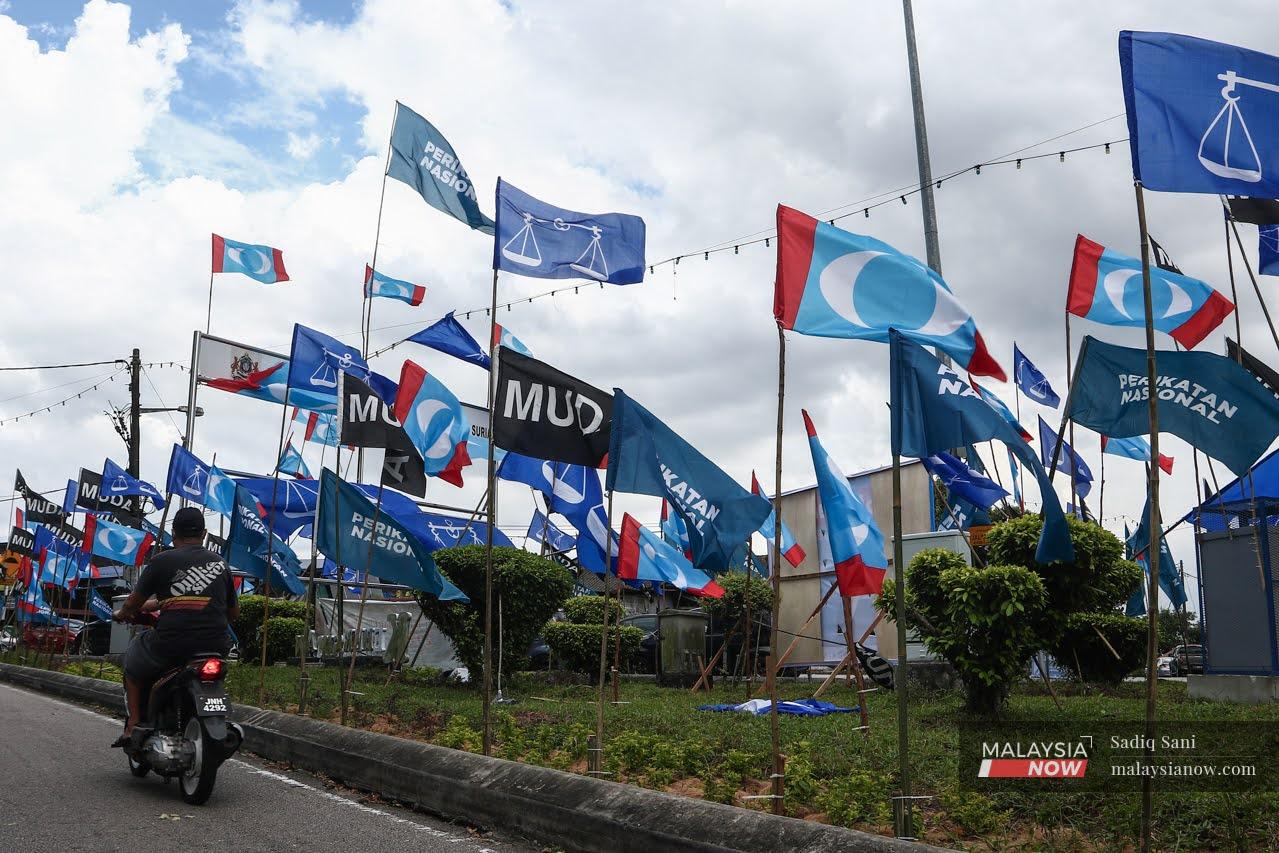Analysts tell why common goals won’t see Bersatu and Pejuang joining hands in Johor
They say the two Malay-based parties are unlikely to work together for the upcoming election, even if this leads to a split in votes.
Just In
While parties such as Bersatu and Pejuang possess similar goals including blocking the return to power of the Umno court cluster in facing the upcoming Johor election, analysts say any cooperation between them is unlikely, even to face down common enemies like Najib Razak.
Najib, who fell from power at the last general election in 2018 and was convicted of criminal charges in 2020, has been the target of attacks by both Bersatu chief Muhyiddin Yassin and Pejuang chairman Dr Mahathir Mohamad.
Yet without an understanding between the two parties, it will be difficult for them to topple Barisan Nasional (BN) as their separate efforts will only result in split votes.
Kamarul Zaman Yusoff of Universiti Utara Malaysia said part of the problem in coming to any sort of agreement was the attitude of the Pejuang leaders.
He said many of them were still lulled by the past glories of Mahathir’s era despite the clear drop in the scope of influence wielded by the veteran politician.
Citing the by-election for Slim in August 2020, he said Amir Khusyairi Mohamad Tanusi, the independent candidate fielded by Pejuang, only succeeded in gaining 2,115 votes whereas BN’s Mohd Zaidi Aziz garnered 13,060.
Now, with the Johor polls around the corner, Kamarul said it would come as no surprise to him if the majority of Pejuang’s candidates ended up losing their deposits due to what he described as the irrationality of the party leaders in trying to manipulate the country’s politics.
Bersatu, under Perikatan Nasional (PN), is contesting 56 seats in the March 12 Johor election. Pejuang meanwhile is running solo in 42.
Kamarul said if Pejuang’s leaders were thinking in a rational manner, they would have understood the need to work with other like-minded parties, especially Bersatu, which shares many similarities.
“But due to their self-esteem and their grudge against Muhyiddin for not also refusing to work with Umno in February 2020, they have closed off any room for cooperation,” he said.
Muhyiddin and Mahathir formed Bersatu together on Sept 6, 2016 at the height of the 1MDB scandal during Najib’s administration.
But they fell out after the so-called Sheraton Move, which saw the collapse of the Pakatan Harapan administration after 22 months in Putrajaya.
Mahathir and a handful of other MPs were sacked from Bersatu, following which they set up Pejuang which is contesting an election for the first time in Johor.
Kamarul, who expects Pejuang to suffer heavy defeats in Johor, said this would spur its leaders to look for “friends” with whom to work.
Analyst Shamsul Amri Baharuddin meanwhile said that “cooperation” would be an inaccurate term to use.
For Shamsul, who is attached to Universiti Kebangsaan Malaysia, both parties “cooperate” to resist what they feel is untrue and should not take place.
But he said the form of cooperation envisioned by some would not be achieved, taking into consideration the loyalty of party members from either side towards their leaders.
“Some love Mahathir and some love Muhyiddin,” he told MalaysiaNow.
In addition, he said, the interests and stands of party leaders diverge despite the similarities in narrative such as protecting the interests of the Malays, equal rights for all races, and strengthening the economy.
He said history had shown that political cooperation can occur but only for the short term due to such differences between parties.
He referred to the formation of Umno in 1946 which was seen as having created a platform to unite the interests of several parties.
These included the fight against the Malayan Union, the protection of the elite such as the Malay royals, and the continued interest of the lower classes such as the Malays in the rural areas.
It was at that point that these interests were united, he said.
Describing this as a platform of integration, he said this was what had allowed them to unite, at least for a while.
“Why do I say temporary? Because within this group were personalities who had different interests and positions,” he said, adding that the personal interests of such people in Umno began to increase after the departure of its founder, Onn Jaafar.
“Tunku Abdul Rahman fought with Onn,” he said. “Onn wanted the party to be open to non-Malays. So the party’s real struggle is one of ideology or the stand of individual leaders.”
Subscribe to our newsletter
To be updated with all the latest news and analyses daily.
